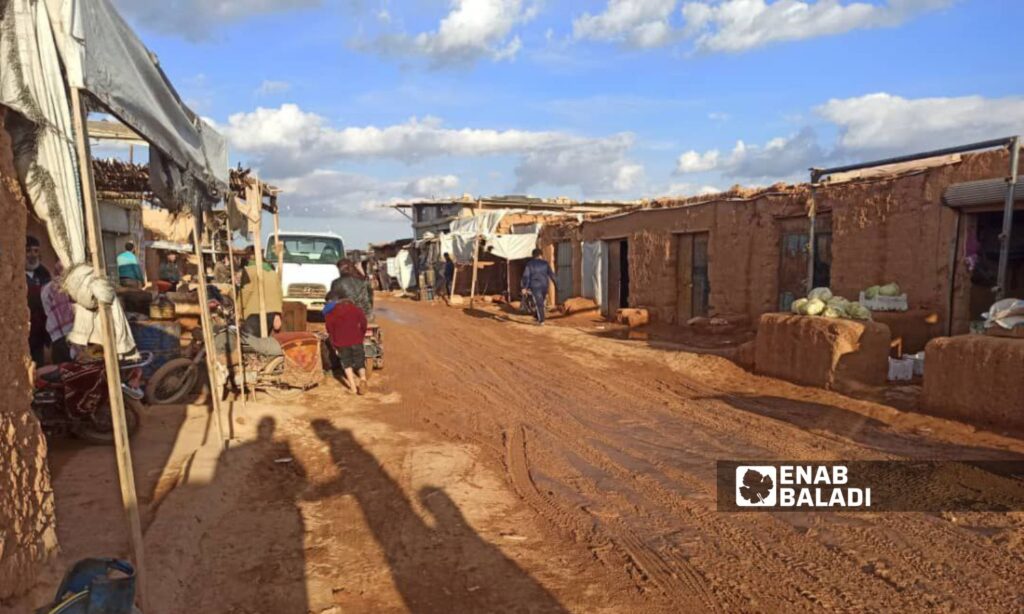Ramadan rituals are absent from the life of Jassim’s family, who originates from Homs province and resides in the besieged Rukban camp on the Syrian-Jordanian border.
Jassim (50 years old) told Enab Baladi that staying in a besieged place, far from relatives and friends, deprives one of feeling any customs or traditions, and leaves one with nothing but nostalgia for memories.
Jassim lives with his family of seven in a mud house in a desert climate abundant with dust, where electricity is absent, a situation similar to that of 8000 other residents of the camp.
The current Ramadan is the tenth for the inhabitants of this camp, away from their original cities. The camp was established near the Syrian-Jordanian border in the al-Tanf region in 2014 and was a crossing point for the displaced from the regions of Homs, Raqqa, and Deir Ezzor towards Jordan.
After Jordan’s prevention in 2018 of Syrian entries from the Rukban area, it turned into an isolated area besieged by the regime on one side and Jordan on the other.
Abandoning some rituals
Jassim maintains the performance of Tarawih prayers in the camp’s mosques, as there are nearly ten mosques within, but he misses the voice of the Suhoor caller he used to hear in his hometown and now relies on his mobile phone’s alarm to set the Suhoor timing.
Jassim’s wife has given up preparing some dishes, especially chicken or meats, due to their high prices. The price of ground meat in the camp has reached 180,000 Syrian pounds per kilogram, and chicken to 75,000 Syrian pounds per kilogram.
The family does not own a gas oven to cook some foods that require baking, nor is there electricity, so a refrigerator to preserve food cannot be operated, and they miss Ramadan foods like maarouk bread and others.
Unregulated prices
In the camp, there is a market for selling meat, clothing, and foodstuffs, but their prices are high and are controlled by traders and smugglers, according to testimonies from the camp’s residents.
The Syrian regime imposes a siege on the entry of food supplies, medicines, and flour to the camp, which enter through smuggling by paying royalties to regime forces, which the merchant then recovers from the residents by raising the prices of goods entering the camp.
The head of the local council in the Rukban camp, Mohammad al-Khaldi, told Enab Baladi that the council is currently unable to control the market, as merchants and smugglers control the prices. He added that there is inflation amid a decline in the purchasing power of most camp residents.
He noted that charitable campaigns have been absent from the camp except for the distribution of four kilograms of chicken during Ramadan to the camp’s poorest families, adding that the distribution targeted about a quarter of the camp’s population.
Some families told Enab Baladi that they received one chicken weighing less than two kilograms, despite needing more for the number of family members.
The residents of the camp face consecutive disasters and crises, the most prominent of which is the acute shortage of drinking water, the scarcity of job opportunities, and the tightening on the entry of aid and materials, most notably flour. This has repeatedly pushed the residents to gather bread crumbs meant for livestock feed and use it for food after soaking it in water, with kishk or hummus.

